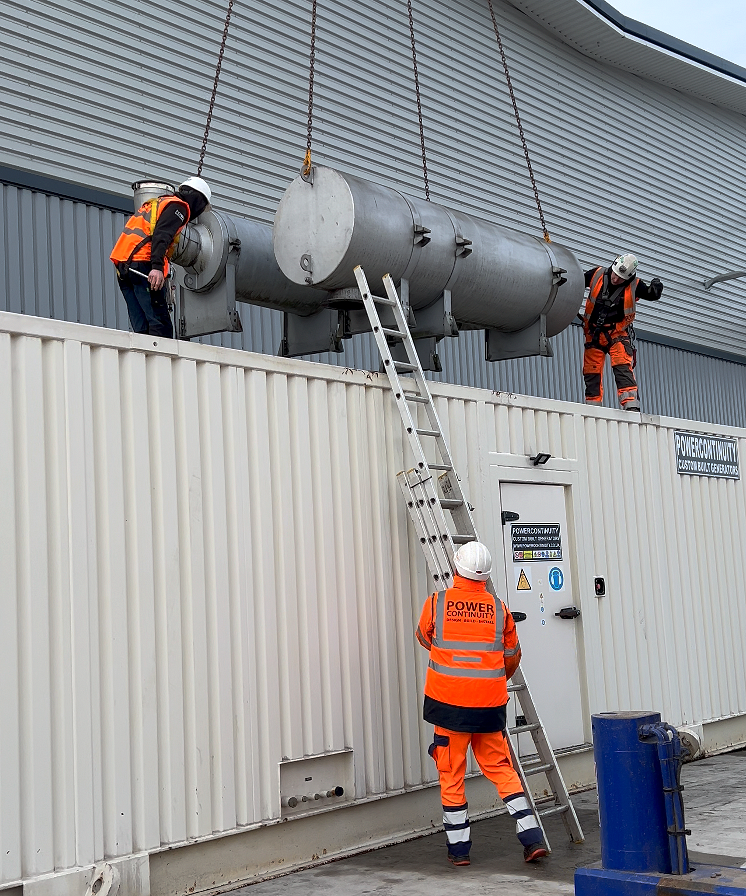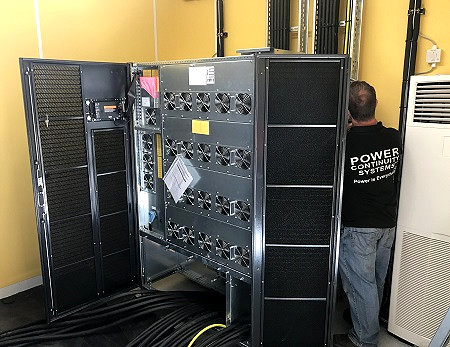In the ever-evolving landscape of energy storage and backup solutions, technological innovations continuously push the boundaries of efficiency, reliability, and sustainability. Among these advancements, the integration of Rotary Flywheel Uninterruptible Power Supplies (UPS) stands out as a transformative force, offering a promising alternative to traditional generator-based backup systems. As the demand for cleaner and more resilient energy solutions intensifies, the concept of generator removal becomes increasingly feasible, paving the way for a greener and more efficient future.
The Challenge of Generator Dependency
For decades, diesel generators have been a staple in backup power systems, providing essential electricity during grid outages or peak demand periods. While effective, these systems come with significant drawbacks, including environmental pollution, high maintenance costs, and reliance on fossil fuels. Moreover, diesel generators often suffer from operational inefficiencies and lengthy startup times, limiting their suitability for critical applications requiring rapid response times.
Enter Rotary Flywheel UPS
Rotary Flywheel UPS systems represent a paradigm shift in energy storage, offering a compelling alternative to traditional generator setups. At the heart of these systems are high-speed rotating flywheels, which store kinetic energy and convert it into electrical power when needed. Unlike batteries, flywheels have virtually unlimited charge cycles and can respond instantaneously to power disturbances, making them ideal for applications requiring seamless backup power.
Key Advantages of Rotary Flywheel UPS:
- Rapid Response Time: One of the most significant advantages of Rotary Flywheel UPS systems is their ability to deliver power almost instantaneously. With response times measured in milliseconds, these systems can seamlessly bridge the gap during grid outages, ensuring uninterrupted operations for critical infrastructure, data centers, and industrial facilities.
- High Efficiency: Compared to traditional battery-based UPS systems, Rotary Flywheel UPS systems boast exceptional efficiency levels. By minimizing energy losses during storage and discharge, flywheel systems can deliver more power with less waste, reducing overall operational costs and environmental impact.
- Reliability and Durability: Flywheel UPS systems are renowned for their reliability and longevity. With fewer moving parts than traditional generators, flywheel systems experience fewer mechanical failures and require minimal maintenance. This translates to increased uptime and lower total cost of ownership over the lifespan of the equipment.
- Scalability and Modularity: Rotary Flywheel UPS systems offer unparalleled scalability, allowing users to expand their backup capacity as needed. Whether powering a small office or a large industrial facility, flywheel systems can be easily configured to meet specific energy requirements, providing flexibility and adaptability in diverse applications.
- Environmental Sustainability: By eliminating the need for diesel generators, Rotary Flywheel UPS systems contribute to a cleaner and more sustainable energy ecosystem. With zero emissions during operation and minimal environmental footprint, flywheel systems align with the growing demand for greener energy solutions and carbon neutrality initiatives.
Generator Removal: Paving the Way to a Cleaner Future
As the advantages of Rotary Flywheel UPS systems become increasingly apparent, the concept of generator removal gains traction across various industries. By replacing fossil fuel-dependent backup systems with environmentally friendly alternatives, businesses and organizations can reduce their carbon footprint and mitigate the impact of climate change.
The transition towards generator removal is not without its challenges. While Rotary Flywheel UPS systems offer numerous benefits, widespread adoption requires overcoming logistical, regulatory, and financial barriers. Additionally, the reliability and resilience of flywheel systems must be rigorously tested and validated to instill confidence among stakeholders.
Despite these challenges, the momentum towards generator removal continues to grow, driven by advancements in energy storage technology, evolving market dynamics, and a growing awareness of the environmental and economic benefits of sustainable energy solutions.
Looking Ahead: A Greener, More Resilient Energy Landscape
As we navigate the complexities of a rapidly changing energy landscape, the integration of Rotary Flywheel UPS systems represents a significant step towards a cleaner, more resilient future. By embracing innovative technologies and reimagining traditional approaches to backup power, we can reduce our dependence on fossil fuels, mitigate the risks of climate change, and build a more sustainable world for future generations.
In the journey towards generator removal and the widespread adoption of Rotary Flywheel UPS systems, collaboration between industry stakeholders, policymakers, and technology innovators will be essential. Together, we can harness the power of innovation to revolutionize energy storage, strengthen our infrastructure, and create a more sustainable and prosperous future for all.









